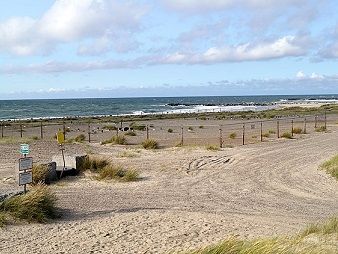The question of who should pay to clean up chemical waste on ground previously occupied by chemical factories is one that has been vexing many local communities and politicians for some years now.
Now, help could be on the way for municipalities that just can’t afford the outlay when it comes to removing dangerous chemicals and soil from these sites.
As part of the new health reform discussion, the government and Dansk Folkeparti have agreed to set aside 600 million kroner up until 2030 to clean up polluted soil at sites such as Cheminova and Grindstedværket.
READ ALSO: Cost of cleaning up old toxic waste dumps is rising
“We’ve decided to increase efforts to combat the so-called ‘generational pollution’. We aim to achieve this partly through funds freed up by effectivisation, but also with an extra 100 million kroner,” said the finance minister, Kristian Jensen, in a press release.
Taking responsibility
The cleaning up of these sites has come in under the health reform negotiations because the government wants to do away with the regional councils, so the responsibility would fall on the state.
“Pollution problems at Cheminova and Grindstedværket have been there for years,” said DF’s finance spokesperson René Christensen.
“We know it is a substantial burden for the local communities that are affected. It is essential that the state now takes over responsibility for clean-up operations. We have to get a grip on things and this is a big step in the right direction.”













